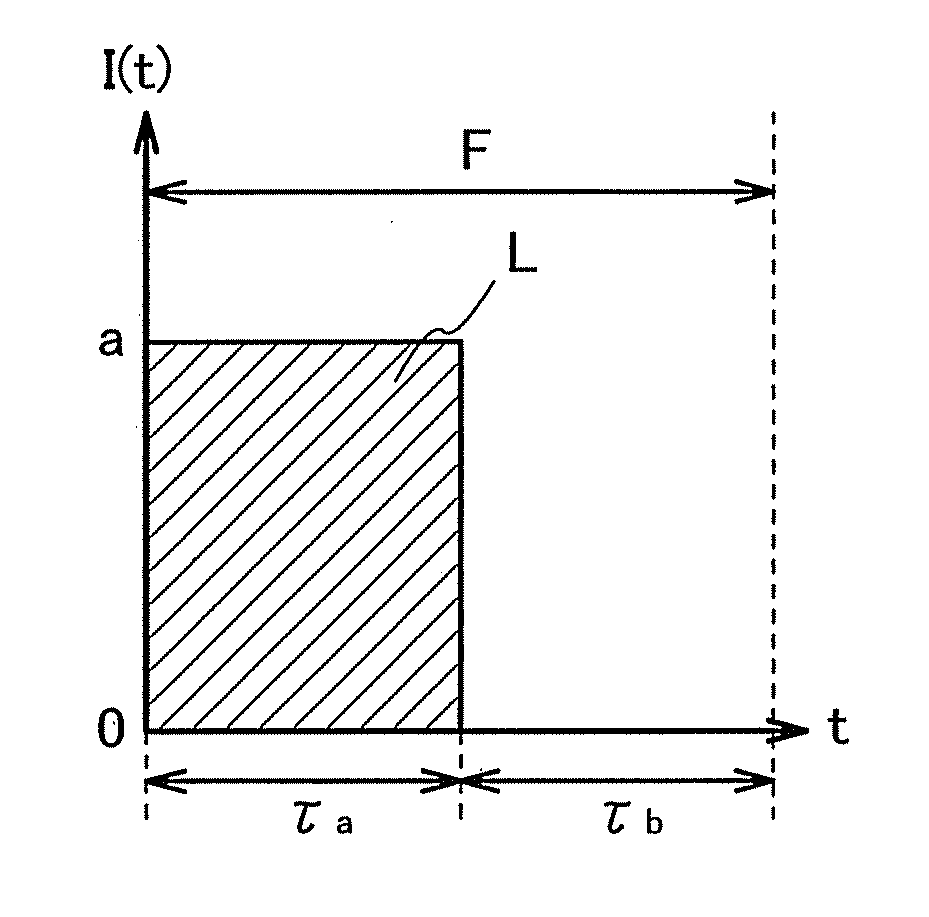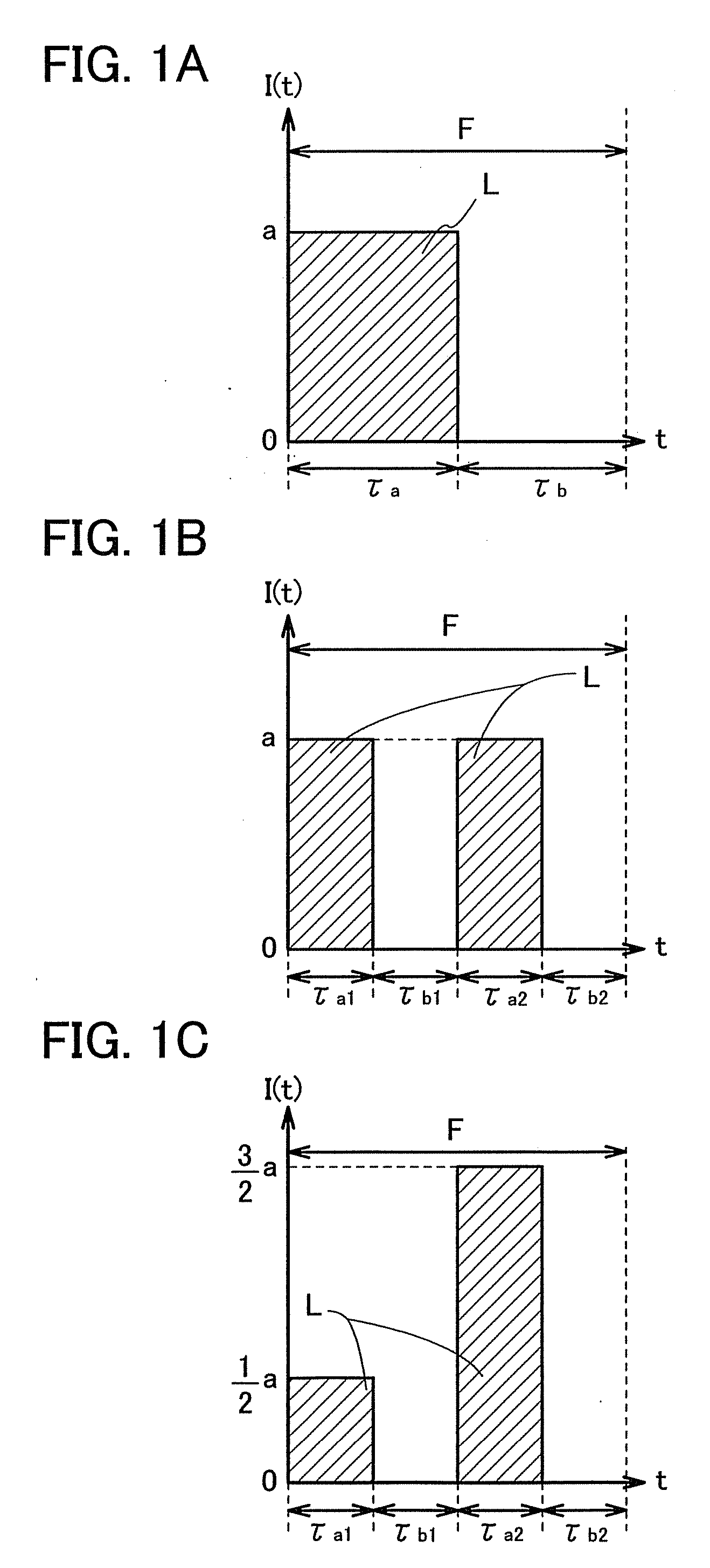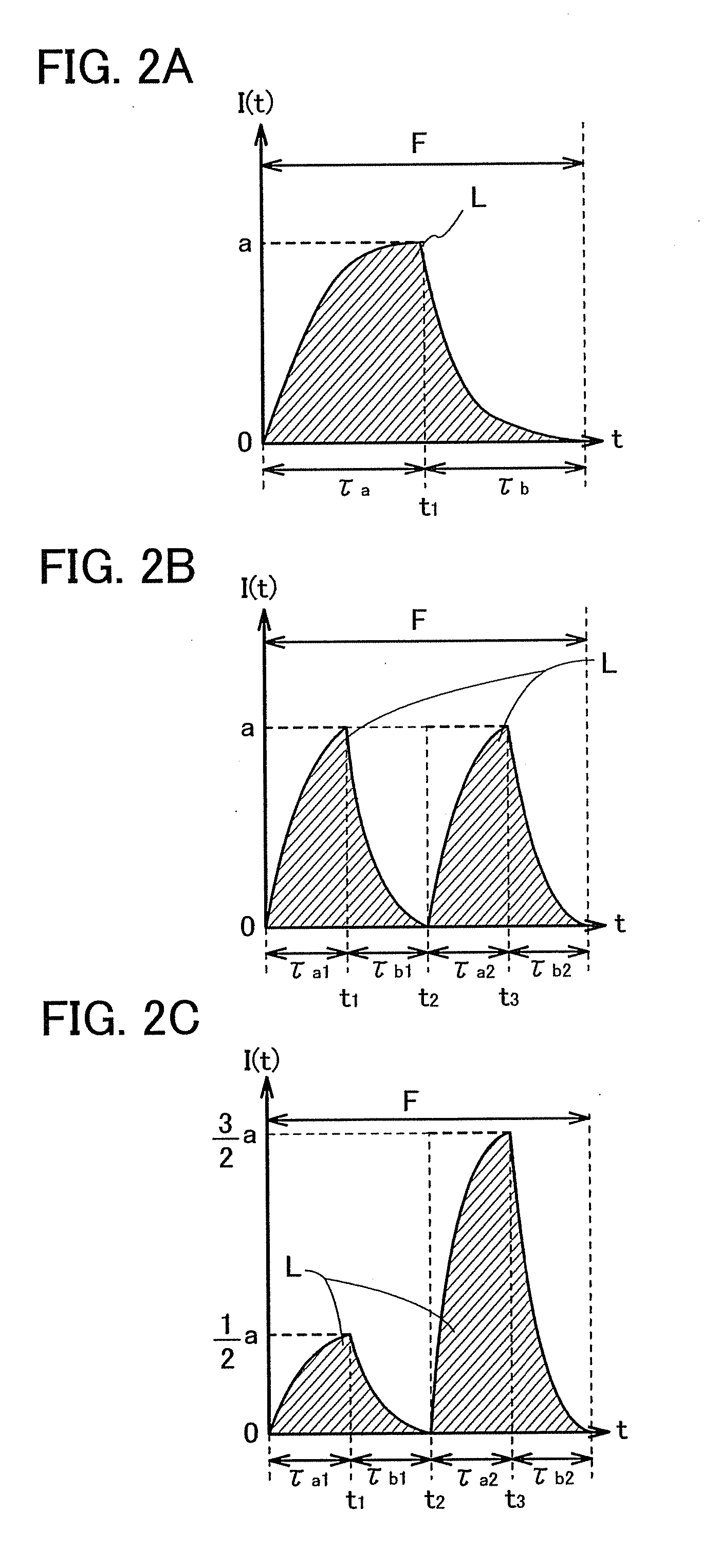Liquid Crystal Display Device and Driving Method Thereof
a display device and liquid crystal technology, applied in the field of display devices, can solve the problems of increasing the load on the display device, insufficient advantages of display devices, increasing other troubles, etc., and achieve the effects of reducing power consumption, increasing manufacturing costs, and reducing the quality of moving images
- Summary
- Abstract
- Description
- Claims
- Application Information
AI Technical Summary
Benefits of technology
Problems solved by technology
Method used
Image
Examples
embodiment mode 1
[0198]In this embodiment mode, words relating to a driving method of a display device, such as instantaneous luminance, integrated luminance, a lighting ratio, and average luminance used in this document (the specification, the claim, the drawing, and the like), and control modes thereof are described.
[0199]First, meanings of words and signs used in this document are described. First, words about time and signs thereof, i.e., t, F, τa, τb, and R are described. The sign t expresses time. The sign F expresses one frame period and the length thereof. One frame period F is divided into a plurality of subframe periods, and each of the subframe periods are classified into an image display period or a blanking interval. Here, the image display period is a period during which original luminance of an image is mainly displayed. The blanking interval is a period during which an image displayed in the image display period can be reset by human eyes. Note that the subframe period may be a perio...
embodiment mode 2
[0290]In this embodiment mode, among methods in each of which the lighting ratio R is changed under a condition that luminance perceived by human eyes is constant and methods in each of which luminance perceived by human eyes is changed, some typical examples are described.
[0291]First, an example of a control method of the lighting ratio R is described. As a control method of the lighting ratio R, (1) a method of directly writing blanking data to each pixel, (2) a method of blinking the whole backlight, and (3) a method of sequentially blinking a backlight which is divided by areas can be mainly given.
[0292]The method (1) can be applied to both the case where a display element included in a display device is a self-luminous element typified by an element included in an EL display, a PDP, or an EFD and the case where a display element included in a display device is a non-light emitting element typified by an element included in a liquid crystal display. The methods (2) and (3) can b...
embodiment mode 3
[0417]In this embodiment mode, specific examples of the control parameter P or Q described in Embodiment Mode 1 are described. In addition, in this embodiment mode, P is used as a sign showing a control parameter.
[0418]Here, in this document, there is not a particular distinction between the case where the sign showing the control parameter is P, the case where the sign showing the control parameter is Q, and the case where the sign showing the control parameter is other than P and Q. The sign showing the control parameter is just determined for convenience. Therefore, among a plurality of specific examples of the control parameter, which are described below, any of the specific examples may be used as the control parameter P, or any of the specific examples may be used as the control parameter Q. In addition, the number of the control parameters is not particularly limited.
[0419]First, the case is described in which the control parameter P is determined by numerically analyzing ima...
PUM
 Login to View More
Login to View More Abstract
Description
Claims
Application Information
 Login to View More
Login to View More - R&D
- Intellectual Property
- Life Sciences
- Materials
- Tech Scout
- Unparalleled Data Quality
- Higher Quality Content
- 60% Fewer Hallucinations
Browse by: Latest US Patents, China's latest patents, Technical Efficacy Thesaurus, Application Domain, Technology Topic, Popular Technical Reports.
© 2025 PatSnap. All rights reserved.Legal|Privacy policy|Modern Slavery Act Transparency Statement|Sitemap|About US| Contact US: help@patsnap.com



